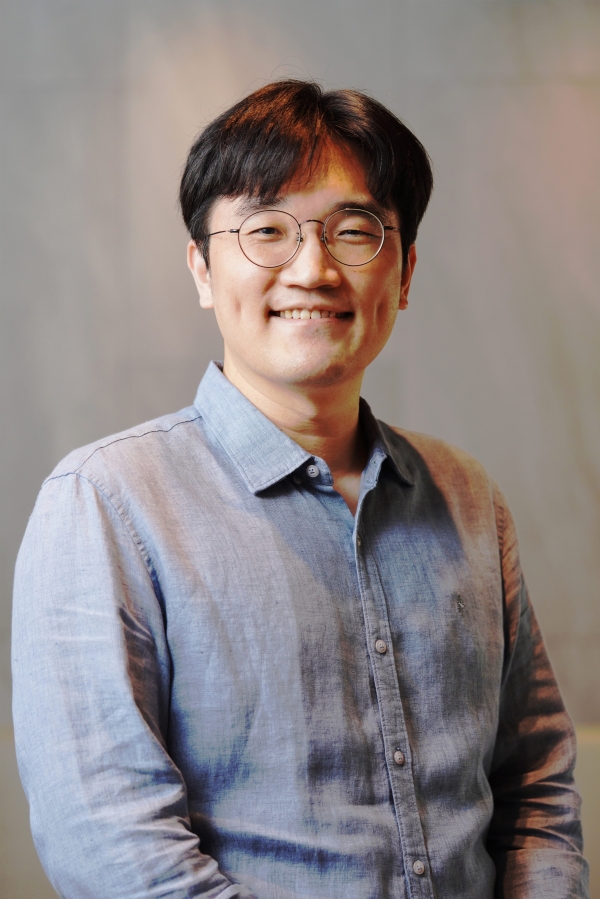
Greetings, I am Gil-Ho Lee from the Department of Physics. Our Quantum Nano-electronics Lab is researching quantum nano-devices. I assume you have heard about quantum mechanics. Although quantum mechanics has been occasionally used as a synonym for an "unknown phenomenon" in science fiction movies, there have recently been more reports on "real quantum mechanics" in the media. It seems to be a time when quantum mechanics, which was traditionally an area of physics, is becoming more widely known since its breadth is widely expanding and connecting with the field of engineering. Our group makes nano-devices to experimentally observe and analyze these quantum mechanical phenomena and consider whether they could be used for practical purposes. Our goal is to create a quantum nano-device that enables much faster computation, communication, and more sensitive sensing than traditional devices.
Topological materials and Floquet state
There are various methods to make quantum devices faster and better. One approach is to utilize well-known quantum mechanics, which initiated the development of quantum computers. Another approach is to study a whole ‘new’ quantum mechanics and try to figure out how to use it. I am more interested in this approach as a physicist. The concept of topology has been created and studied by mathematicians. Recently, this concept of topology has been combined with quantum mechanics, and ‘topological quantum mechanics’ has been born. Substances with these unusual properties are called topological (quantum) materials. These properties are not something that can be used to make devices recklessly; we need to understand the principles, devise appropriate mechanisms, and experimentally implement them. This is what I study.
The interesting thing is you do not necessarily have to make new topological materials. If you apply pressure, shine a light on, or twist a well-known material, you might see something with a brand-new physical property. Recently, our lab observed an unusual quantum phenomenon in which the quantum states are copied when light is shed on the material. Such states are called Floquet states, and by adjusting the wavelength and intensity of light, you can control the quantum state, which is a very useful tool for making quantum devices. Previously, the Floquet state has only been maintained for a very short period, 100 femtoseconds (10-13 seconds). The significance of our work is that we have been able to create the Floquet state continuously using microwaves with very low frequencies. Now that we can create a Floquet state as long as we require, I am looking forward to making useful quantum devices.
What brought you to the field of quantum nano-devices?
Now, let me share more of my experience as a researcher. I was also an undergraduate in POSTECH’s Department of Chemistry, class of 2007. During my undergraduate years, I also took courses for physics majors and learned that physics in high school and general physics for freshman were only a part of physics. Quantum mechanics was particularly fascinating in that it explains experimental results by breaking common sense assumptions in classical mechanics. Very weird things that could not be understood by common sense happen, such as the principle of superposition, through which a cat can be dead while still alive, and the principle of entanglement, in which the act of observing A can change the state of B. The world would have been too boring if everything was explained by F=ma. I wanted to test out whether these odd phenomena actually happen with my own two hands, so I went to POSTECH’s Graduate School of Physics and started doing quantum mechanics experiments.
Research is the process of finding out things that people did not know before, so finding a problem comes before finding an answer. This is a somewhat different process from exams we take during courses where the problems are clearly given. At first, it was tough getting used to this way of research. When reading research papers, I focused on what people thought in the past, and eventually found problems and solutions since research, after all, is also done by people. As a graduate student, I felt research does not guarantee rewards proportional to the effort, and realized doing research while looking for rewards would always be tough due to the uncertainty of success. I think accepting this point and pursuing the pure joy of research is the only way to enjoy research.
Study abroad / Advice for future researchers
After receiving my Ph.D., I worked as a postdoctoral researcher at Harvard University. That group was large with a total of about 10 graduate students and 10 postdocs including researchers from various backgrounds. During my postdoctoral course, I could expand my research perspective by learning new physical concepts and research techniques. This was the most valuable experience I have had working abroad. One thing I felt was that Harvard graduate students were not much different from the POSTECH students that I knew. It was just that on average, Harvard students were more curious about other people's research, which led to questions and discussions. As a result, they improved their communication skills and expanded their knowledge by learning notably well. In the end, research is also done by people, so interest in others and communicating with them are extremely important. I think POSTECH can grow even more with a more interactive atmosphere.
The more research discovers new things, the greater the meaning, reward, and ripple effect on the academic/industrial world it will have, but the uncertainty of achievement is greater too. If you are a student who is accustomed only to solving given problem sets, it seems that you will have to undergo similar hardships that I have experienced. Even if that time comes, I hope that you can keep your initial pure motivation for the research and experience the world with a broader perspective.


